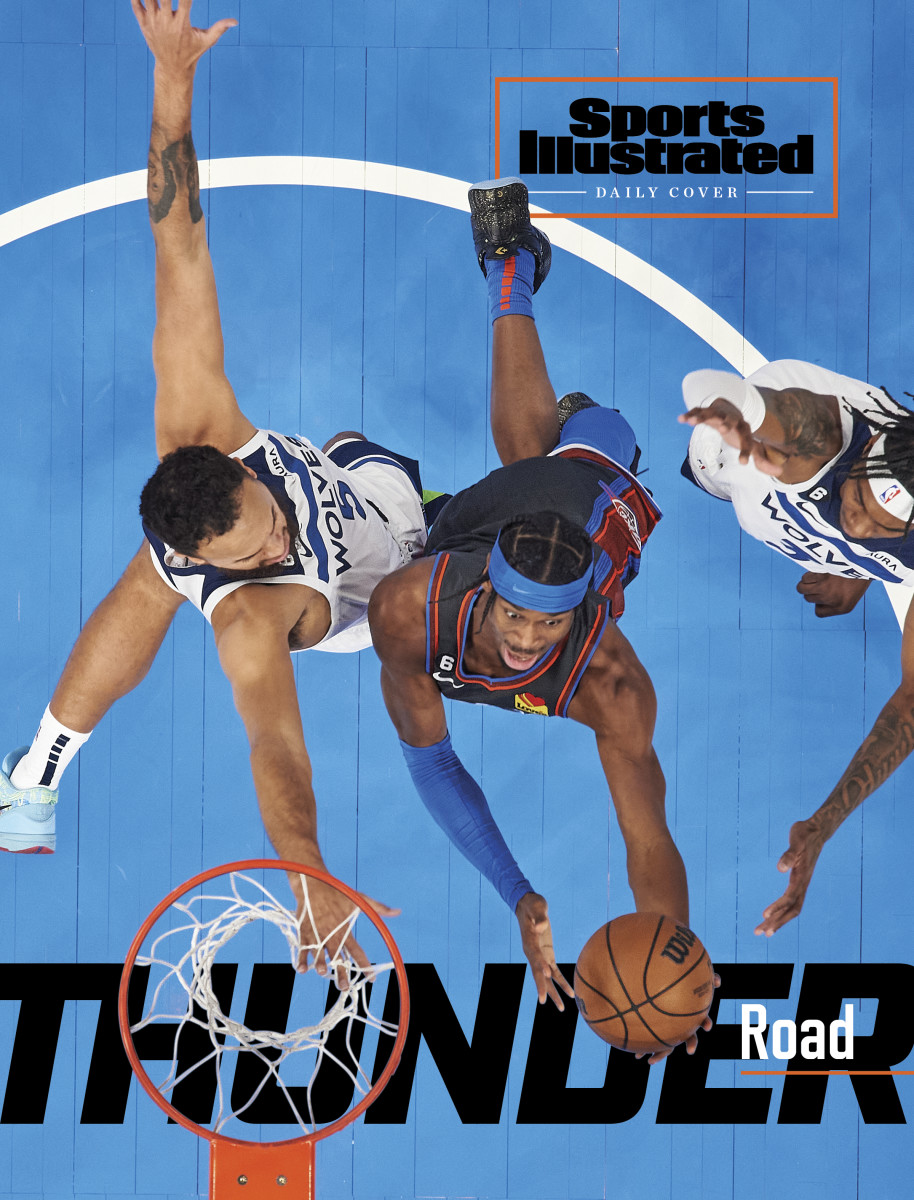SI:AM | Can the Knicks Keep Their Streak Going?

Good morning, I’m Dan Gartland. The Knicks wasted no time overtaking the Nets as the new best team in New York.
In today’s SI:AM:
⚜️ Derek Carr signs with the Saints
⚾ Why you should watch the WBC
If you're reading this on SI.com, you can sign up to get this free newsletter in your inbox each weekday at SI.com/newsletters.
Knicks go for 10 in a row
No team in the NBA is hotter right now than the Knicks. With a win tonight against the Hornets at home, New York would stretch its winning streak 10 games, the fourth longest in the NBA this season. The Knicks haven’t had a double-digit win streak since 2013 (13 games) and have won at least 10 games in a row just six times in their history. Add in the eight-game winning streak the Knicks had back in December, and that makes this the first season since 1972–73 in which New York has posted multiple eight-game winning streaks.
The streak includes some really impressive wins, like Sunday night’s double-overtime victory against the Celtics in Boston and two nights earlier in Miami when Julius Randle hit an off-balance three with less than one second on the clock to give the Knicks a 122–120 win.
Randle has been outstanding during the streak. He had 43 points in the win over the Heat and 46 a week earlier against the Wizards. He’s averaging 25.4 points per game for the season but 29.6 during the streak, thanks to some hot shooting. (His three-point percentage during the streak is 42.4%, compared to 35.5% for the season.) Jalen Brunson has also been excellent as he continues to quiet the doubters who questioned the big contract he got from the Knicks over the summer.
Brunson and Randle have led the way for the Knicks all season long, but with Brunson out injured Sunday night, two role players stepped up in a major way. Backup point guard Immanuel Quickley put up a career-high 38 points and RJ Barrett had 29, his most since Feb. 2.
Performances like those show how the depth of this Knicks team has been critical during this streak. The Knicks are also benefiting from two deadline additions. The first, Josh Hart, has come off the bench in nine games since being acquired from the Blazers in a four-team trade. He’s shooting 59% from three in a New York uniform. The other addition didn’t come in a trade but has been just as important. Mitchell Robinson missed 14 games with a broken thumb before returning Feb. 24. Robinson is an excellent defensive center (which he showed with this impressive block of Jayson Tatum in New York’s win over the Celtics on Feb. 27) and is a significant upgrade over Jericho Sims, who started in the middle in his absence.
The streak has vaulted the Knicks to fifth in the East, which is to say from the play-in tournament to a spot in the first round, and they’re a game and a half behind the Cavaliers for fourth place and home court advantage. The Knicks have a tough stretch coming up, though, as they embark on their annual road trip to make space at the Garden for the Big East men’s tournament. After tonight’s game at home against the Hornets, New York has four games on the West Coast against the Kings, Clippers, Lakers and Blazers. The first game back at MSG after the road swing is against the West-leading Nuggets on March 18. While it’s unlikely that the Knicks will emerge from that stretch with their winning streak intact, those five games will still tell us a lot about where the Knicks stand on the eve of the postseason. After a slow start to the season, it’s looking like they could make some noise in the playoffs.
The best of Sports Illustrated

- In today’s Daily Cover, Chris Mannix profiled emerging star Shai Gilgeous-Alexander, who has sped up OKC’s careful rebuild.
- Albert Breer explains what the Ravens’ impending decision on Lamar Jackson means for the quarterback market as a whole.
- Breer also looks at Derek Carr’s contract with the Saints.
- Gilberto Manzano writes that signing Carr makes the Saints the best team in the NFC South, but does it make them a Super Bowl contender?
- Conor Orr argues that the Jets were right to pass on Carr in favor of potentially landing Aaron Rodgers.
- Emma Baccellieri has six reasons why you should watch the World Baseball Classic.
- Police in Colorado are reportedly investigating the video in which Ja Morant appeared to brandish a gun.
- Vikings receiver K.J. Osborn helped save a man from a burning car.
- Red Sox infielder Justin Turner needed 16 stitches after being hit in the head by a pitch.
The top five...
… things I saw last night:
5. Aaron Judge’s first home run of spring training.
4. Grant Williams’s overconfidence before stepping to the line for some clutch free throw attempts.
3. Connor McDavid’s game-winning goal against the Sabres.
2. Donovan Mitchell’s dunk on Mike Muscala. (Mitchell had 40 points in the Cavs’ win over the Celtics.)
1. Brandon Ingram’s dunk on Kevin Huerter.
SIQ
On this day in 1982, North Carolina narrowly defeated Virginia in the ACC men’s basketball tournament final in a game that left fans disappointed and contributed to the introduction of the shot clock after UNC coach Dean Smith ordered his team into the “four corners” offense to run out the clock. How much time was left when Smith called for his team to stall?
- 3 minutes, 14 seconds
- 5 minutes, 22 seconds
- 7 minutes, 34 seconds
- 10 minutes, 55 seconds
(A quick note about the SIQ answer in yesterday’s newsletter: I wrote that the NFL divided itself into American and National Conferences after the 1949 merger with the AAFC. A few readers reached out to say that the NFL still had East and West divisions before the ’66 merger with the AFL. Both are true. From ’50 to ’52, the NFL had conferences, then reverted to East-West divisions in ’53 before adopting conferences permanently in ’70.)
Yesterday’s SIQ: On March 6, 1923, the Cardinals announced they would put numbers on players’ sleeves, making them the second MLB team to use jersey numbers. Which team was first?
- Yankees
- Cleveland
- Cubs
- Red Sox
Answer: Cleveland. While the Yankees are often credited with being the first team to use jersey numbers, they were merely the first to use them on a permanent basis.
Cleveland first put numbers on players’ sleeves on June 26, 1916, in a move that was inspired by horse racing jockeys. But the experiment lasted only a few weeks. Before the ’23 season, Cardinals general manager Branch Rickey announced St. Louis players would wear numbers on their sleeves as Cleveland had years earlier. The numbers, which corresponded to players’ spots in the batting lineup, were six inches tall. The Cards’ efforts also flopped. Rickey later wrote St. Louis players were ridiculed by fans and opposing players alike, so the numbers were removed.
Jersey numbers finally earned some legitimacy in 1929 when the two-time defending World Series champion Yankees announced they would put numbers on players’ backs. Those larger numbers were much easier for far-flung spectators to read than the ones on players’ sleeves. Shortly after the Yankees’ announcement, Cleveland announced it would be bringing back jersey numbers—this time, like the Yankees, on players’ backs. When the Yankees’ season opener was rained out, Cleveland became the first MLB team to play with numbers on the back of its uniforms.
